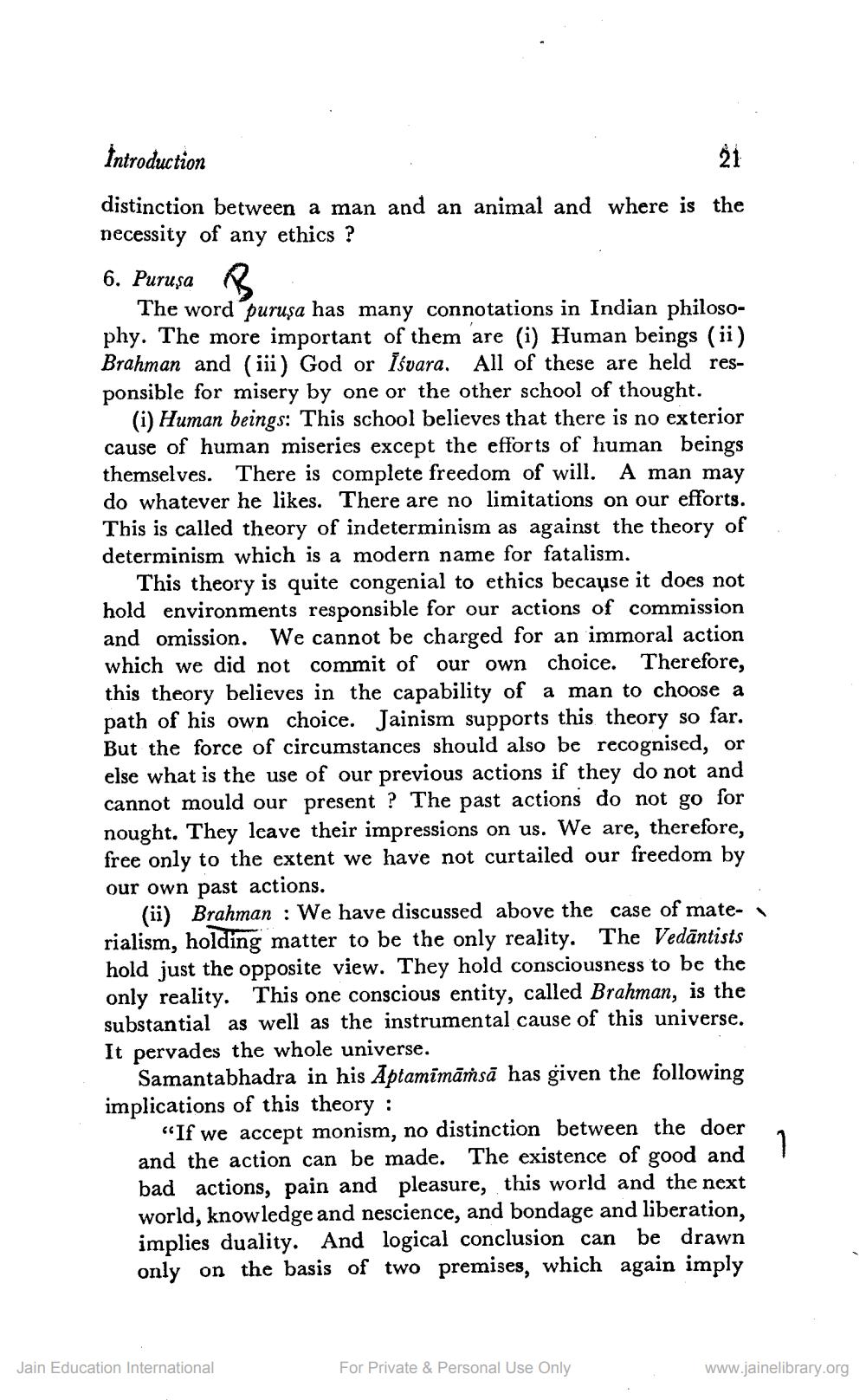________________
Introduction distinction between a man and an animal and where is the necessity of any ethics ? 6. Puruşa R .
The word puruşa has many connotations in Indian philosophy. The more important of them are (i) Human beings (ii) Brahman and (iii) God or īśvara. All of these are held responsible for misery by one or the other school of thought.
(i) Human beings: This school believes that there is no exterior cause of human miseries except the efforts of human beings themselves. There is complete freedom of will. A man may do whatever he likes. There are no limitations on our efforts. This is called theory of indeterminism as against the theory of determinism which is a modern name for fatalism.
This theory is quite congenial to ethics because it does not hold environments responsible for our actions of commission and omission. We cannot be charged for an immoral action which we did not commit of our own choice. Therefore, this theory believes in the capability of a man to choose a path of his own choice. Jainism supports this theory so far. But the force of circumstances should also be recognised, or else what is the use of our previous actions if they do not and cannot mould our present ? The past actions do not go for nought. They leave their impressions on us. We are, therefore, free only to the extent we have not curtailed our freedom by our own past actions.
(ii) Brahman : We have discussed above the case of materialism, holding matter to be the only reality. The Vedāntists hold just the opposite view. They hold consciousness to be the only reality. This one conscious entity, called Brahman, is the substantial as well as the instrumental cause of this universe. It pervades the whole universe.
Samantabhadra in his Aptamīmāṁsā has given the following implications of this theory :
“If we accept monism, no distinction between the doer and the action can be made. The existence of good and bad actions, pain and pleasure, this world and the next world, knowledge and nescience, and bondage and liberation, implies duality. And logical conclusion can be drawn only on the basis of two premises, which again imply
Jain Education International
For Private & Personal Use Only
www.jainelibrary.org




